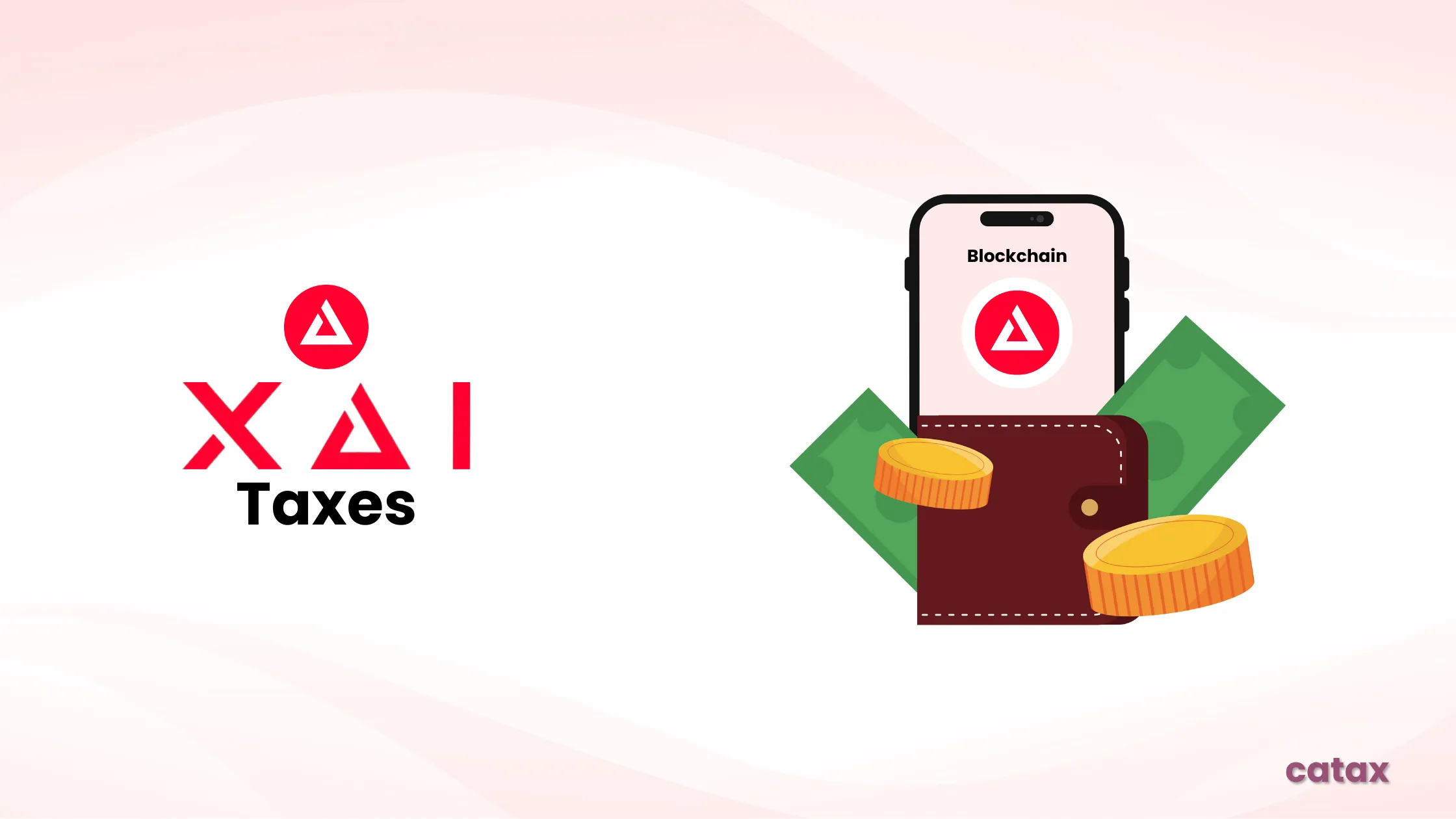Cryptocurrency tax rules vary by country, and XAI taxes transactions may be taxed based on local regulations. Whether you buy, sell, trade, or stake XAI, understanding how tax authorities classify these activities helps you stay compliant and avoid penalties.
This guide simplifies XAI tax rules to help you manage your crypto taxes with clarity and confidence.
How to Connect Your XAI Wallet to Catax
To track your XAI transactions and calculate taxes effortlessly, follow these steps to connect your wallet to Catax:
- Open your XAI wallet or access a block explorer (such as MetaMask, Trust Wallet, Ledger, or any other supported wallet).
- Copy your public wallet address from your XAI wallet.
On Catax:
- Log in to Catax and select your country.
- Select Chain, then search for XAI Wallet.
- Paste your public address and click Connect.
Once connected, Catax will automatically track your XAI transactions and simplify your crypto tax reporting.
Calculate My Taxes ➤Are XAI Transactions Taxable?
Yes, in most countries, XAI transactions are considered taxable events. Governments may classify XAI as a capital asset, property, or income, depending on how it’s used.
When Do You Have to Pay Taxes on XAI?
You may be required to pay taxes in the following situations:
- Selling XAI for a profit – If you sell XAI for more than your purchase price, the gain is typically subject to capital gains tax.
- Trading XAI for another cryptocurrency – Exchanging XAI for other cryptocurrencies like Bitcoin or Ethereum may trigger a taxable event.
- Using XAI to make purchases – If you use XAI to buy goods or services and its value has increased, that gain may be taxed.
- Earning XAI through staking or rewards – XAI earned from staking is often treated as income and taxed when received.
- Receiving payment in XAI – If you’re paid in XAI for work or services, it’s usually taxed as income based on its fair market value at the time of receipt.
Since tax treatment varies by jurisdiction, check your country’s rules on crypto taxation.
Can You Deduct Trading Fees and Other Costs?
Whether you can deduct costs like trading fees depends on local tax laws.
Some countries allow deductions for:
- Trading fees incurred when buying or selling XAI
- Network or gas fees used when transferring XAI
Others only allow deduction of:
- The cost of acquiring XAI (your cost basis), without recognizing additional expenses.
Always verify your country’s crypto tax policies for accurate deductions.
How Is XAI Taxed Based on Holding Period?
Tax rates on XAI gains may vary depending on how long you’ve held the tokens:
- Short-term holdings (less than a year) – Often taxed as regular income.
- Long-term holdings (over a year) – Some countries offer reduced rates for long-term gains.
- Flat-rate tax systems – In some places, a fixed tax rate applies regardless of the holding period.
Knowing your jurisdiction’s rules can help you plan ahead and potentially reduce your tax liability.
You can also check out our Country-Specific Guide for Crypto in Your country. This guide provides insights on regulations, tax implications, and compliance measures breifly explained for each country.
How Is Staking Income Taxed?
Staking XAI can be a source of passive income, but the way it’s taxed varies by country. Some governments tax staking rewards immediately upon receipt, while others only apply taxes when those rewards are sold or exchanged.
How Countries Tax Staking Rewards
- Taxed as income – In many jurisdictions, staking rewards are considered income and taxed at the time you receive them, just like a salary. The value of the XAI at the time of receipt determines the taxable amount.
- Taxed as capital gains – In some countries, staking rewards are only taxed when you sell or trade them. In this case, the taxable amount is the profit you make when you dispose of the tokens.
If you stake XAI, it’s important to know when the tax obligation starts. Some countries tax staking rewards even if you haven’t sold or exchanged them yet.
To avoid unexpected liabilities, check your local tax regulations before staking XAI.
Can You Claim XAI Losses for Tax Benefits?
Not all XAI trades result in profits. If you sell XAI at a loss, that loss might help reduce your overall tax burden. Here’s how various jurisdictions handle crypto losses:
- Loss offsets – Some countries allow you to use losses from XAI trades to offset profits from other crypto transactions, so you only pay taxes on your net gain.
- Loss carryforward – If you can’t use your losses this year, certain tax systems let you carry them forward to reduce taxable income in future years.
Accurate transaction records are essential for claiming losses and benefiting from tax deductions where allowed.
How to Stay Compliant with XAI Tax Rules
Crypto tax laws are evolving, and staying compliant is key to avoiding penalties. Here are a few tips to stay on track:
- Understand how your country taxes XAI – Know whether your gains are classified as capital gains, income, or business earnings.
- Keep detailed records – Document every transaction involving XAI, including purchases, sales, trades, staking, and spending.
- Use a crypto tax platform like Catax – Catax helps automate your tax tracking and reporting, making it easier to file accurate tax returns.
- Consult a tax expert – If you’re unsure about your obligations, seek advice from a crypto tax professional who understands your local laws.
Being proactive, organized, and informed is the best way to handle your XAI taxes responsibly.
Book a Free Consultation Now →